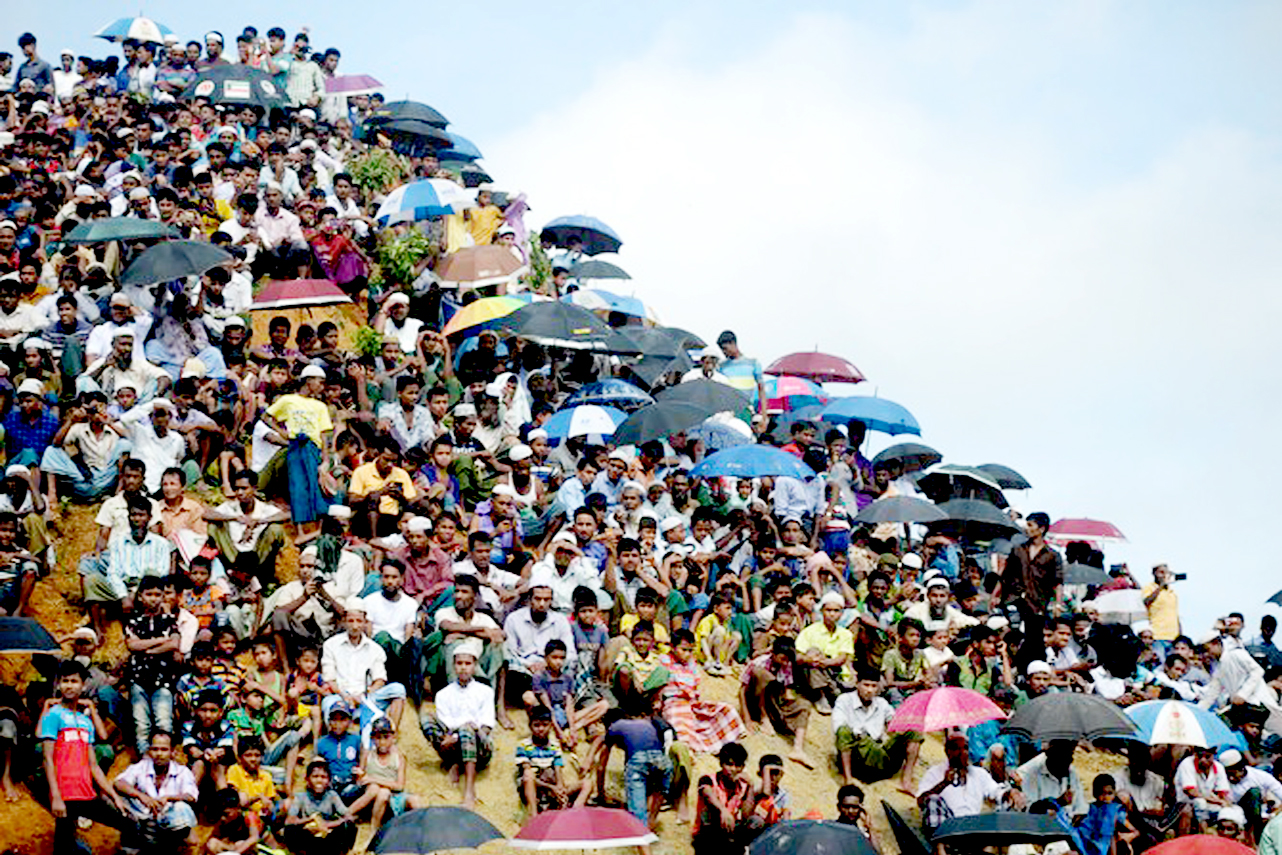Repatriation Or Risk?: Rohingyas caught in uncertainty

Farrukh Khosru with Abrar Al Amin from Cox’ Bazar :
The announcement of the repatriation of Rohingya refugees has elicited mixed reactions within the refugee camps in Cox’s Bazar.
The Bangladesh government has stated that Myanmar agreed to take back 180,000 Rohingya in the initial phase of repatriation.
However, analysts believe that the process would not be straightforward, as much of Rakhine State is currently under the control of Myanmar’s armed rebel group, the Arakan Army.
The issue has become the subject of intense debate and criticism since the chief adviser announced the repatriation plan through a post on his verified Facebook account on Friday, 4 April. Many Rohingya residing in the camps hold differing views on the matter.
Currently, more than 1.2 million Rohingya are living in refugee camps in Ukhiya and Teknaf in Cox’s Bazar, as well as on Bhasan Char in Noakhali. The majority fled Myanmar’s Rakhine State following the military-led atrocities and genocide that commenced on 25 August 2017.
Bangladesh initially provided shelter on humanitarian grounds; however, the situation has since evolved into a significant crisis for the country.
From the outset, Bangladesh has sought to facilitate the return of the Rohingya.
An agreement was reached between the two nations, but despite eight years having passed, Myanmar has not repatriated a single individual, repeatedly delaying the process.
While Myanmar has now acknowledged 180,000 Rohingya as eligible for return out of a submitted list of 800,000, the practical implementation remains uncertain. Although this is seen as a diplomatic achievement for Bangladesh, optimism remains cautious.
Nabi Hossain, a Rohingya living in Camp-4, expressed his hope, stating, “We are delighted that after eight long years, the Myanmar government has agreed to our repatriation. Arakan is our homeland, and we are always ready to return.”
However, others share concerns regarding the safety and recognition of their rights. Mohammad Hossain, from Camp-1, emphasised the need for a dignified return, saying, “We want to be recognised as Rohingya and repatriated with dignity.
But given the ongoing conflict in our homeland, where our relatives and fellow Rohingya are suffering, I am unsure how repatriation can proceed safely.”
Maulana Abdul Hamid echoed these sentiments, remarking, “We are grateful to the Bangladesh government for providing us with refuge.
However, we do not want to live indefinitely at their mercy; we seek a dignified return. With the junta government lacking control over Rakhine State, how can repatriation be feasible?”
Rohingya leaders insist that while they are eager to return, their safety must be guaranteed.
Mohammad Zobair, Chairman of the Arakan Rohingya Society for Peace and Human Rights, stated, “Our hearts remain in Arakan. We are ready to return to Myanmar once a safe and secure environment is ensured.”
For the host communities, a successful repatriation would bring significant relief. Helal Uddin, a member of the local Union Parishad, commented, “Myanmar has agreed to take back 180,000 Rohingya, but approximately 1.3 to 1.4 million remain here.
The repatriation process must be extended to include all Rohingya without complications. We expect the government to prioritise this issue.”
Preparations for repatriation are already underway, with transit centres in Teknaf, Cox’s Bazar, and Ghumdhum, Bandarban, ready to facilitate the process.
According to Abu Saleh Mohammad Obaidullah, Additional Refugee Relief and Repatriation Commissioner, “Repatriation involves multiple steps, some of which have already been completed.
The next phase entails the physical transfer of individuals, which will proceed in line with government directives. We are awaiting the finalised list.”
Bangladesh has submitted a list of 800,000 Rohingya to Myanmar in six phases between 2018 and 2020.
If repatriation proceeds as planned, it will ease Bangladesh’s burden while enabling the Rohingya to return to their homeland. Experts believe this initiative could usher in a new chapter in diplomatic relations between the two neighbouring countries.
